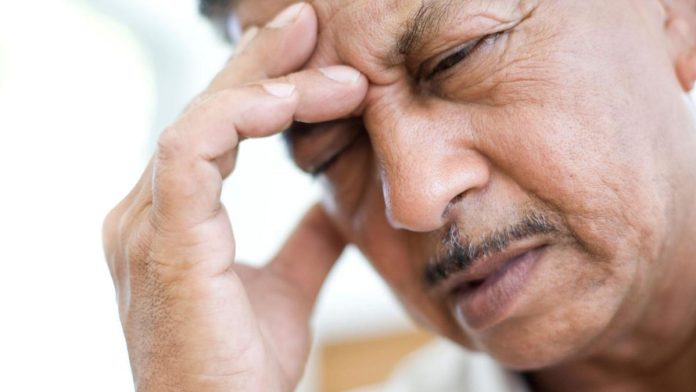Tens of thousands of people who have a stroke could be diagnosed and treated sooner as new data found that the average time between onset of first symptoms and a 999 call being made was nearly an hour and a half.
New analysis of NHS data shows that for 2023-24, of 41,327 patients with a recorded time of symptom onset, the average time between first symptom and a 999 call being made was 88 minutes1.
The figures come as the NHS today launches the first major update to the ‘Act FAST’ campaign since 2009, urging the public to call 999 immediately if anyone experiences one of the three common symptoms including struggling to smile (Face) or raise an arm (Arms), or slurring their words (Speech).
England’s top doctor today urged the public to call 999 even if the first sign of stroke doesn’t seem like an emergency, and said immediate action at the first sign of a stroke “could help save and protect many more lives”.
The analysis has been published today by the Sentinel Stroke National Audit Programme at King’s College London, and comes as new polling of 2,001 adults in England found that 57% of respondents believed you should have 2-3 symptoms of a stroke before calling 999, despite just one being a sign of a medical emergency.
Nearly two thirds of respondents said they would not call 999 as their first course of action if they noticed someone was suddenly struggling to smile.
The NHS campaign launches with a brand new TV advert showing example symptoms – a man recognising his partner is struggling to smile while watching TV (Face), a decorator suddenly unable to lift their paint roller (Arm), and a grandmother struggling to read their grandchild a bedtime story (Speech) – which will run across TV, TV on demand and radio in England until mid-December.
As part of the campaign launch, a powerful new film has also been released which features stroke survivors listening back to audio recordings of the real 999 calls that saved their lives.
Professor Sir Stephen Powis said: “These figures highlight very clearly that we must do more to support people to recognise the symptoms of stroke in themselves and others and take action to call 999 at the earliest opportunity. Stroke symptoms can be less obvious or dramatic than you might expect, but even if it doesn’t seem like it, any sign of stroke is always an emergency and it’s vital you call 999 immediately.
“This campaign is so important – greater awareness of the need to act fast and dial 999 could help save and protect many more lives, as we know that earlier recognition of symptoms and immediate action to call 999 can enable faster access to specialist treatment and the best chance of reducing long-term effects of a stroke.”
Around 100,000 people have a stroke each year in the UK, which occurs when the blood supply to part of the brain is cut off. Without prompt treatment a stroke can result in death or long-term disabilities such as paralysis, memory loss and communication problems.
While more people are now surviving a stroke than ever before thanks to advances in NHS care, strokes remain the fourth single leading cause of death in the UK, with 38,000 stroke-related deaths each year.
A stroke can happen to anyone at any age, but those at increased risk include people aged over 50 years old, people from a Black or South Asian background, or those living with existing conditions such as high blood pressure, diabetes or sickle cell disease.
Dr David Hargroves, NHS national clinical director for stroke and consultant stroke physician, said: “When someone has a stroke, it’s estimated they may lose around two million brain cells a minute, which is why rapid diagnosis and treatment is critical – the first sign of a stroke might not seem like much, but face or arm or speech, at the first sign it’s time to call 999.
“Thanks to greater awareness of the symptoms and advances in NHS care, more people are now surviving a stroke than ever before, but there is much more to do help save lives and reduce the long-term impact of strokes. Acting FAST remains vital – whether it is a friend, loved one or even a passer-by, dialling 999 quickly saves lives.”
NHS ambulance teams are trained to recognise the symptoms of a stroke, ensuring anyone having one receives emergency medical care and specialist treatment.







